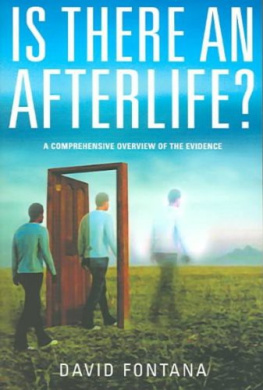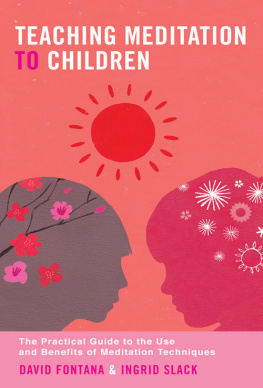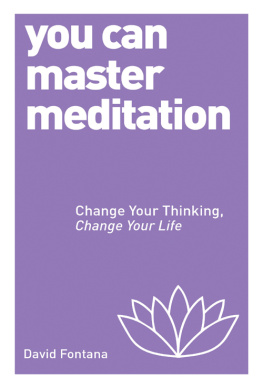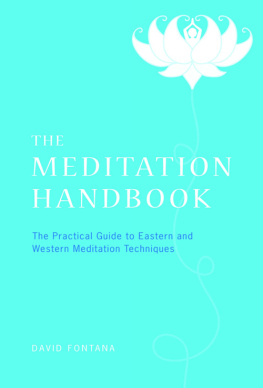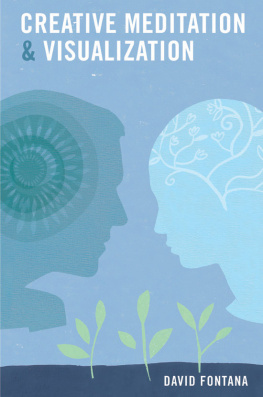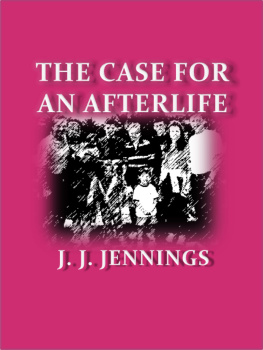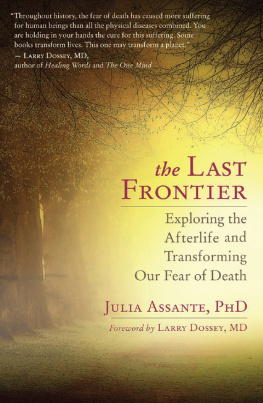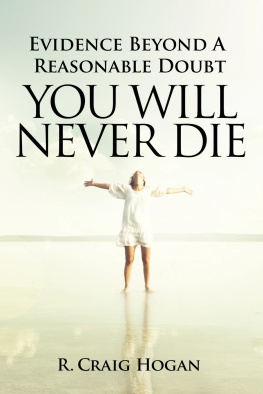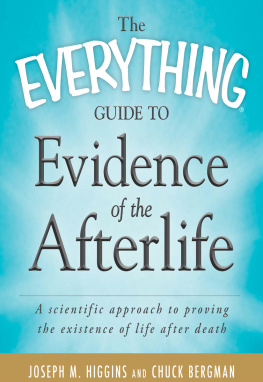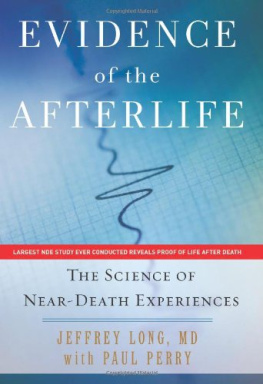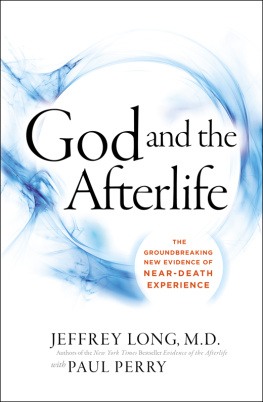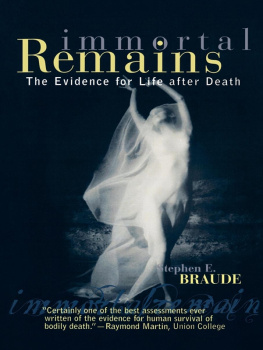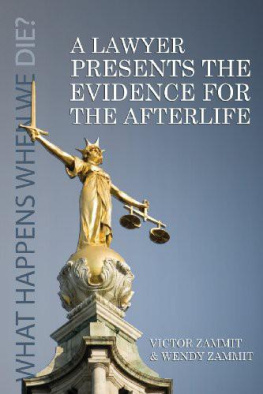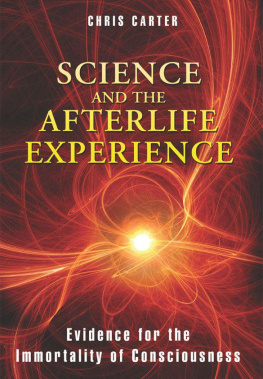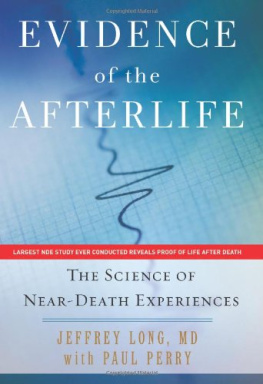David Fontana - Is There An Afterlife?: A Comprehensive Overview of the Evidence
Here you can read online David Fontana - Is There An Afterlife?: A Comprehensive Overview of the Evidence full text of the book (entire story) in english for free. Download pdf and epub, get meaning, cover and reviews about this ebook. year: 2005, publisher: Iff Books, genre: Religion. Description of the work, (preface) as well as reviews are available. Best literature library LitArk.com created for fans of good reading and offers a wide selection of genres:
Romance novel
Science fiction
Adventure
Detective
Science
History
Home and family
Prose
Art
Politics
Computer
Non-fiction
Religion
Business
Children
Humor
Choose a favorite category and find really read worthwhile books. Enjoy immersion in the world of imagination, feel the emotions of the characters or learn something new for yourself, make an fascinating discovery.
- Book:Is There An Afterlife?: A Comprehensive Overview of the Evidence
- Author:
- Publisher:Iff Books
- Genre:
- Year:2005
- Rating:5 / 5
- Favourites:Add to favourites
- Your mark:
- 100
- 1
- 2
- 3
- 4
- 5
Is There An Afterlife?: A Comprehensive Overview of the Evidence: summary, description and annotation
We offer to read an annotation, description, summary or preface (depends on what the author of the book "Is There An Afterlife?: A Comprehensive Overview of the Evidence" wrote himself). If you haven't found the necessary information about the book — write in the comments, we will try to find it.
Is There An Afterlife?: A Comprehensive Overview of the Evidence — read online for free the complete book (whole text) full work
Below is the text of the book, divided by pages. System saving the place of the last page read, allows you to conveniently read the book "Is There An Afterlife?: A Comprehensive Overview of the Evidence" online for free, without having to search again every time where you left off. Put a bookmark, and you can go to the page where you finished reading at any time.
Font size:
Interval:
Bookmark:
IS THER E AN
AFTERLIFE?
David Fontana

In memory of three of my dearest friends who
have made the transition we call death.
Ralph Noyes
Arthur Ellison
Montague Keen
Distinguished researchers into life's mysteries
and noblest of spirits.
Copyright 2005 O Books
Reprinted 2006
Deershot Lodge, Park Lane, Ropley, Hants, S024 OBE, UK.
Tel: +44 (0) 1962 773768 Fax +44 (0) 1962 773769
E-mail: office@johnhunt-publishing.com
www.O-books.net
U.S.A. and Canada
Books available from:
NBA,
15200 NBN Way
Blue Ridge Summit, PA 17214, U.S.A.
Tel: 1 800 462 6420
Fax: 1 800 338 4550
Text: 2004 David Fontana
Text set in Weiss by Andrew Milne Design, UK
Cover design: Krave Ltd, London
ISBN : 1 903816 90 4
All rights reserved. Except for brief quotations in critical articles or reviews, no part of this book maybe reproduced in any manner without prior written permission from the publishers.
The rights of David Fontana as author have been asserted in accordance with the
Copyright, Designs and Patents Act 1988.
A CIP catalogue record for this book is available from the British Libra r y.
Printed by Maple-Vail Ltd, USA
Foreword4
Introduction6
Chapter 1Survival of Death: Questions and Beliefs 10
Chapter 2Evidence from Modern Parapsychology 16
Chapter 3Evidence from Apparitions 25
Chapter 4Hauntings 55
Chapter 5Mediumship: History and Background 91
Chapter 6Mental Mediumship 115
Chapter 7Three Outstanding Mental Mediums 121
Chapter 8Drop-in Communicators and the Cross-Correspondences 157
Chapter 9Proxy Cases 190
Chapter 10Are Statements by Mediums Too General
and Too Trivial? 219
Chapter 11Physical Mediumship: Independent Voice Phenomena 230
Chapter 12Physical Mediumship: Materializations and
Other Phenomena 244
Chapter 13Physical Mediumship: More Recent Examples
and the Question of Fraud 295
Chapter 14Instrumental Transcommunication 352
Chapter 15Near-Death Experiences 382
Chapter 16Out-of-the-Body Experiences 406
Chapter 17Reincarnation 426
Chapter 18The Nature of an Afterlife 443
Conclusion468
References470
It is now more than a century since serious research into ostensible paranormal phenomena began. Psychical research has been conducted in many countries throughout the world attracting the attention of some of the most famous scientists, renowned for their important work in disciplines such as psychology, physics, astronomy, biology, to name only a few.
It has also engaged the efforts and allegiance of respected physicians, philosophers and statesmen. Many have been members of the Society for Psychical Research or the American Society for Psychical Research. It is a remarkable fact, for example, that in the first century of the S.P.R.'s existence, among the fifty-one Presidents of the Society there were nineteen Professors, ten Fellows of the Royal Society, five Fellows of the British Academy, four holders of the Order of Merit, and one Nobel prize-winner.
In their studies of the field, often conducted for decades of years, most of them accepted that a wealth of evidence has been collected leading them to the conclusion that a wide variety of different kinds of paranormal phenomena occur. Many concluded that unless one accepts an explanation involving super-telepathy, clairvoyance and precognition (the so called super-ESP theory, never ever demonstrated in a Para psychological laboratory), the possibility that some human beings survive death, retaining their essential personalities, memories, characteristics, skills and concern for those they have left behind, has to be taken very seriously indeed.
And yet more than a century of such evidence is still ignored by the majority of scientists and of course the materialist reductionist. With respect to scientists it might be thought that they have carefully examined the evidence and considered it to be inadequate or faulty. But that is not so. The simple answer is that they have no track record in psychical research, never having studied the evidence or experimented in the subject. At best they may have seen some newspaper or magazine article or some slanted TV programme. With respect to the materialist sceptic who maintains vociferously that no paranormal phenomenon has ever been proven to occur, he or she is equally ignorant of the evidence or so Flat Earth minded that no amount of hard evidence would ever change his or her mind.
For these reasons and more, Professor David Fonanta's new book is of great importance. In it he displays an almost encyclopaedic knowledge of the vast field of psychical research and gives a careful and balanced account not only of past investigations, but also of modern significant studies being carried out. The bibliography itself is of great value. His own significant contributions to that subject in the study of mediumship, both mental and physical, poltergeists and the Electronic Voice Phenomenon are also described.
I have no doubt that Professor Fontana's book will become a modern classic, allowing anyone coming fresh to the subject and of open mind to realise why psychical research is of such importance, providing perhaps the best road to our understanding of what a human being is. It gives hope of extending our knowledge of human personality and it shows why many psychical researchers over the past century have taken very seriously indeed the possibility that survival of that inescapable appointment we call death takes place.
Archie E. Roy
Professor Emeritus of Astronomy in Glasgow University, Former President of the Society for Psychical Research.
The Sure Facts of Life
It is rightly said that birth and death are the two sure facts of life. We know a great deal about birth, the prelude to independent existence, but death remains shrouded in mystery. Is death the end of this existence, as many people believe and as many scientists assume is demonstrated by the facts? Or is death the transition to another phase of life, with all the challenges and promises that such a transition may present?
The purpose of this book is to survey the evidence that may help us answer these questions. Some critics may claim that all such evidence can be dismissed as fraud, delusion, or wishful thinking. Others may be surprised that a psychologist should even consider a book on survival, as psychologists are known to be the most skeptical of all scientists on matters relating to any aspect of the so-called paranormal. My reply to these critics is that one should not pronounce on the quality of evidence in any field until one has studied it, and that far from avoiding the subject psychologists should regard it with particular interest as psychology is about people, and people want answers to fundamental questions such as whether or not there is life after death.
Many scientists consider that such questions can never be answered, as they cannot be subjected to proper scientific test. Others insist that even without proper test, science has demonstrated that the chances we live after death are vanishingly small. Science has never found anything resembling a soul or a spirit in the body, and when the body dies that must therefore be the end of it. Even those relatively few scientists (known as parapsychologists) who do take a professional interest in the paranormal prefer for the most part to ignore the issue of survival, preferring to focus instead on paranormal abilities in the living, such as telepathy, clairvoyance, and precognition. We will explore the reasons for this at appropriate points in the book, but among them is the fear that the question of survival is so closely associated with fraudulent mediumship, spiritualism, religion, ghost stories, and other doubtful areas that any active interest in the subject is likely to give parapsychology a bad name (see e.g. Alvarado 2003 ). Despite the fact that parapsychologists (by which I mean those based in university and other research laboratories, not those who simply decide to call themselves by that name), using methods as rigorous as those in the other sciences, have established the existence of paranormal abilities beyond reasonable doubt, parapsychology still struggles to obtain acceptance by orthodox science. Thus it prefers to ignore anything, such as survival research, which may make that struggle even more difficult.
Font size:
Interval:
Bookmark:
Similar books «Is There An Afterlife?: A Comprehensive Overview of the Evidence»
Look at similar books to Is There An Afterlife?: A Comprehensive Overview of the Evidence. We have selected literature similar in name and meaning in the hope of providing readers with more options to find new, interesting, not yet read works.
Discussion, reviews of the book Is There An Afterlife?: A Comprehensive Overview of the Evidence and just readers' own opinions. Leave your comments, write what you think about the work, its meaning or the main characters. Specify what exactly you liked and what you didn't like, and why you think so.

